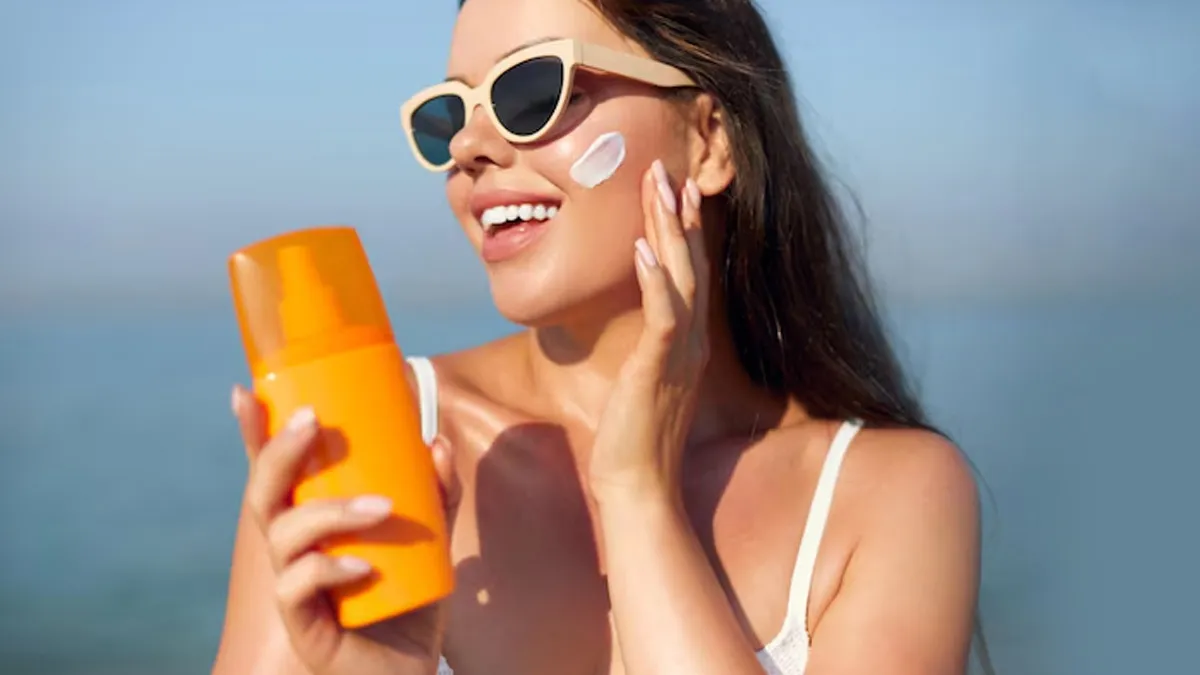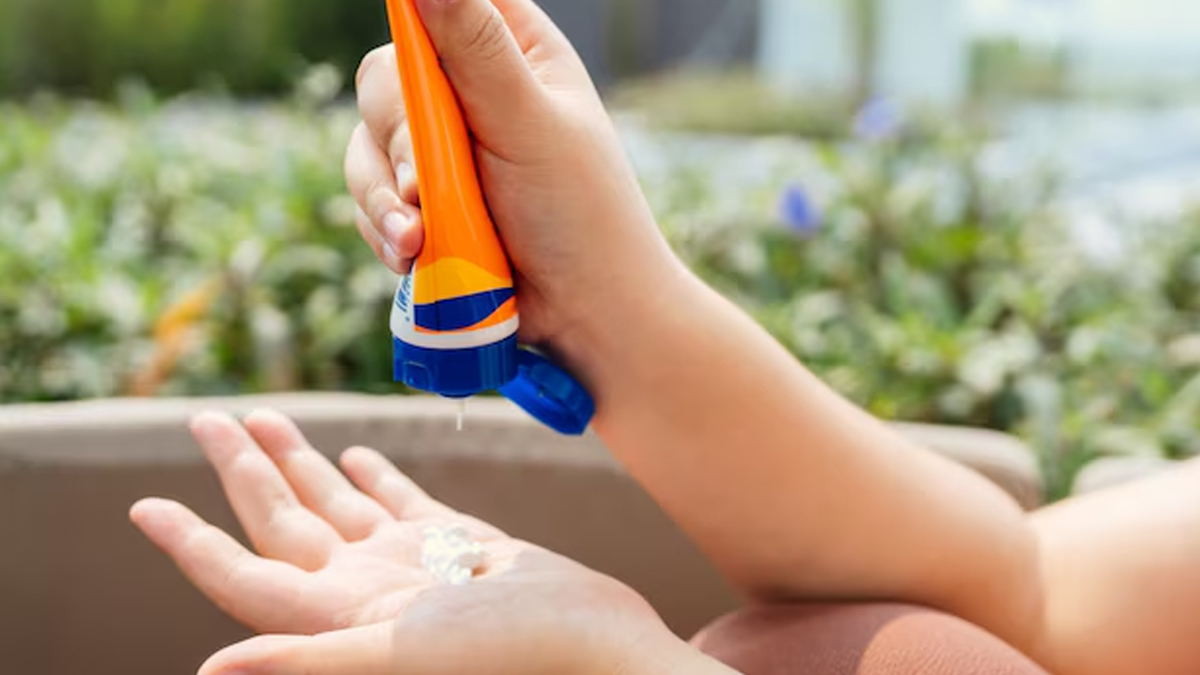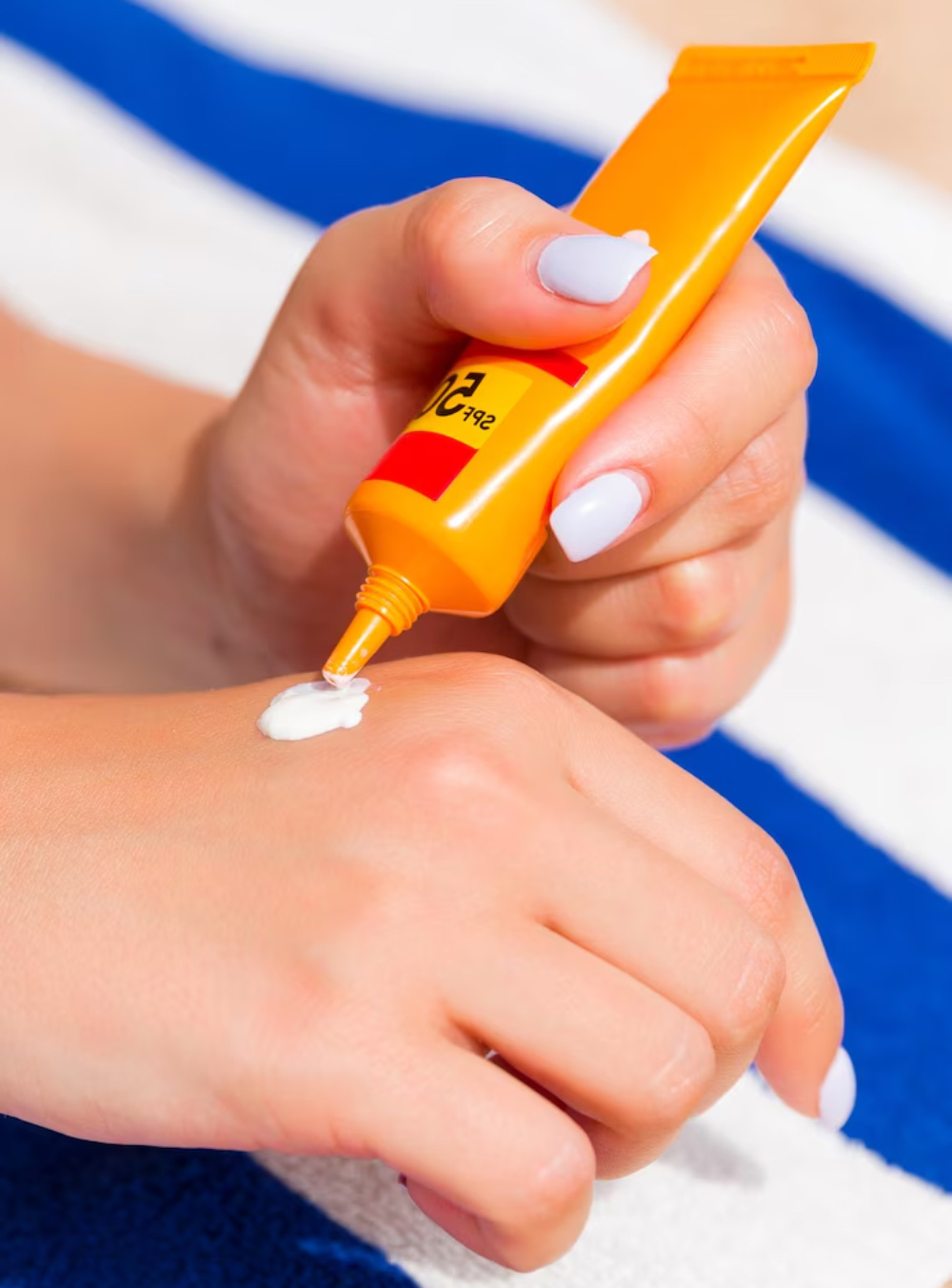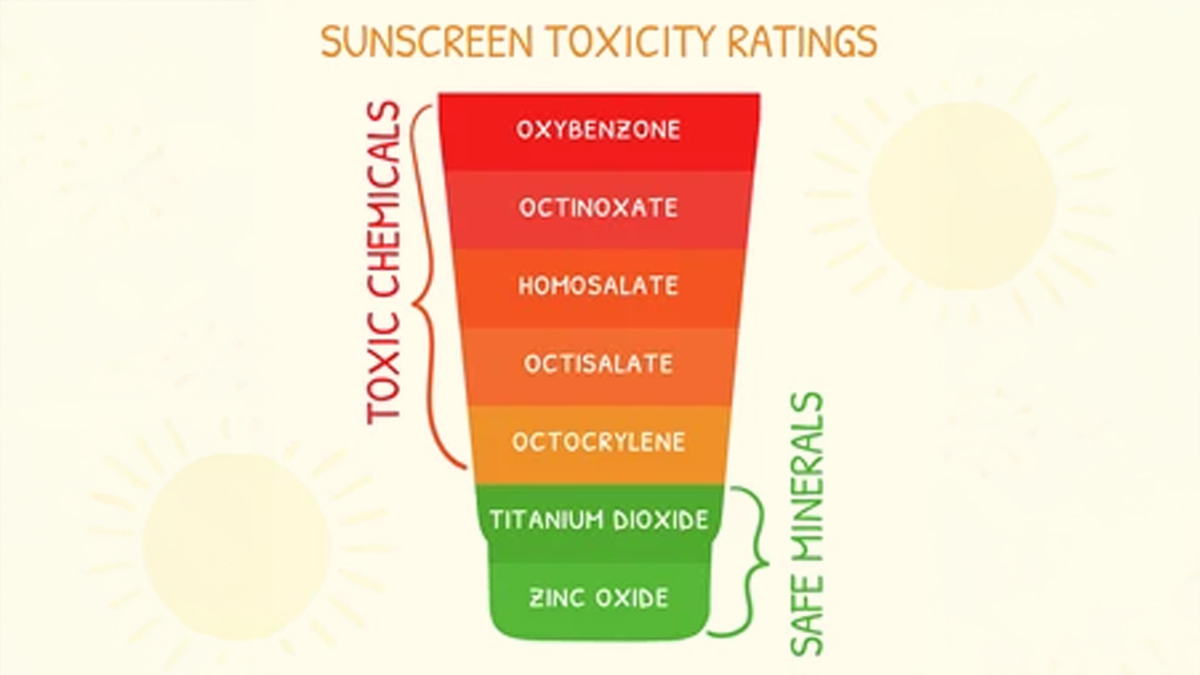
We all know that sunscreen is a non-negotiable part of any skincare routine, but if you have sensitive skin, it can be challenging to find one that works. Some sunscreens can promise protection but end up causing redness, itching, or breakouts. It can be frustrating, especially when your goal is to protect your skin. The problem usually comes down to certain ingredients that don’t sit well with sensitive skin. So before you go for your next SPF, here's a quick run-through of what you should steer clear of to keep your skin calm, happy, and protected.
Table of Content:-
Ingredients To Avoid In Sunscreen If You Have Sensitive Skin
1. Oxybenzone

Oxybenzone is a common sunscreen ingredient, but it's not ideal for sensitive skin. It prevents UV rays from entering the skin, but it can also cause irritation, allergic contact, and even hormonal disturbance in some people. A study conducted in 2018 suggested that oxybenzone in human beings may contribute to contact and photo-contact allergy reactions. It has been recognised as a possible endocrine disruptor linked with Hirschsprung's disease.
2. Fragrance
Yes, it smells nice. But your skin doesn’t care. Added fragrances, whether synthetic or natural essential oils are one of the top causes of contact dermatitis. Scented products can make your skin more reactive and increase the risk of sun sensitivity or rashes, especially when you're outdoors and the sun is involved.
Instead, opt for sunscreens labelled 'fragrance-free' (not just 'unscented,' which may still include masking fragrances).
Also Read: Sun Protection: What Is Hybrid Sunscreen And Is It Better Than Regular Sunscreen?
3. Alcohol

If your sunscreen is super light and dries fast, it may contain alcohol. Alcohol-based products dry out your skin's moisture barrier, causing dryness, tightness, and irritation. That feeling of tightness you experience after using a product? It's not your skin getting firmer, it's a sign that it's drying out and needs moisturising.
4. Preservatives like Methylisothiazolinone (MI)
MI is a preservative used in many personal care products, including sunscreens, to prevent bacterial growth. But it’s also a well-known skin irritant and a major trigger for allergic reactions, especially in people with eczema or rosacea-prone skin. The American Contact Dermatitis Society named it 'Allergen of the Year' a few years ago.
5. Avobenzone (in unstable formulations)
Avobenzone is a good UVA blocker, but it can become unstable when exposed to sunlight unless properly stabilised. In sunscreens that aren’t well-formulated, it can break down and cause skin sensitivity or reactions. If the sunscreen doesn’t say it’s 'photostable' or 'stabilised,' it’s better to avoid avobenzone if your skin is extra sensitive.
Also Read: Can Sunscreen Use Impact Vitamin D Production And Increase Vitamin D Deficiency Risk?
What Should You Look For Instead?
The safest bet for sensitive skin? Mineral sunscreens. Look for active ingredients like:

- Zinc Oxide
- Titanium Dioxide
These sit on your skin and block UV rays instead of absorbing them. They’re gentle, won’t clog pores, and are less likely to irritate. Additionally, they start working the moment you apply them with no 15-minute wait time.
Look for formulas that say:
- Fragrance-free
- Hypoallergenic
- For sensitive skin
- Dermatologist-tested
Bottomline
Your skin deserves sun protection, but not at the cost of redness, itching, or flare-ups. Even if a product looks perfect on paper, always do a patch test, especially when it comes to sunscreen. Skip the harsh chemicals, go mineral when in doubt, and remember, what works for someone else might not work for you.
[Disclaimer: This article contains information for informational purposes only. Hence, we advise you to consult your professional if you are dealing with any health issue to avoid complications.]
Also watch this video
How we keep this article up to date:
We work with experts and keep a close eye on the latest in health and wellness. Whenever there is a new research or helpful information, we update our articles with accurate and useful advice.
Current Version